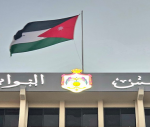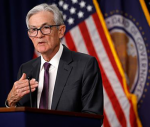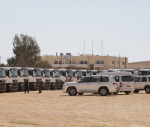You are here
US and Iran address obstacles to nuclear deal as deadline nears
By Reuters - May 30,2015 - Last updated at May 30,2015
GENEVA — US Secretary of State John Kerry met his Iranian counterpart Mohammad Javad Zarif for six hours on Saturday trying to overcome obstacles to a final nuclear agreement, a month ahead of a deadline for a deal between Tehran and six world powers.
They were the first substantive talks since Iran struck an interim accord with the United States, Britain, France, Germany, Russia and China on April 2.
"Secretary Kerry and Foreign Minister Zarif, along with their teams, had a thorough and comprehensive discussion of all of the issues today," a senior State Department official said, without elaborating.
One of the issues still to be resolved is the push by the world powers for international access to Iran's military sites and its team of atomic experts. For its part, Tehran wants sanctions to be lifted immediately after a deal is reached.
A senior US official said earlier there had been substantial progress in negotiations in Vienna in recent weeks on drafting a political agreement and three technical annexes on curbing Tehran's nuclear programme.
The United States has said it will not extend the talks beyond the June 30 deadline.
"We really do believe we can get it done by [June] 30th and we're not contemplating an extension. We just aren't," said the official travelling with Kerry to Geneva, adding that Kerry's schedule for June had been cleared to focus on the talks.
But France, which has demanded more stringent restrictions on the Iranians, has indicated discussions are likely to slip into July. Iran's senior nuclear negotiator Abbas Araqchi also warned that the deadline might need to be extended.
Kerry was due to visit Paris on Monday after a quick trip to Madrid on Sunday.
Inspections
A Western diplomat said inspections of military sites by UN watchdog the International Atomic Energy Agency (IAEA) and access to Iran's scientists were critical to checking whether Iran was pursuing a clandestine nuclear weapons programme.
"If the IAEA can't have access to [the scientists] or the military sites then its a problem," the Western diplomat said. "The IAEA needs sufficient access quickly to those sites to ensure things don't just disappear."
The State Department official took a similar view, saying without access "we're not going to sign" a deal.
Iran denies any ambition to develop a nuclear weapon and says its programme is purely peaceful.
"The issue of interviews with nuclear scientists is generally off the table as well as the inspection of military sites," Araqchi told reporters as he arrived for the talks with Kerry. "How additional protocol would be implemented is still a matter of disagreement that we are still talking about."
Related Articles
The timing of sanctions relief is the main sticking point in nuclear talks that resumed on Wednesday with a meeting between delegates from Iran and the European Union.
One of Iran's top nuclear negotiators signalled on Friday that talks with world powers could be extended beyond November's deadline, given big barriers standing in the way of a deal.
TEHRAN — Iran said Tuesday it had started to restrict some site inspections by the UN nuclear watchdog in response to the US refusal so far
















